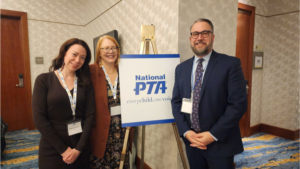How it all got started
It wasn’t exactly what we planned for the spring of 2020. Already, life wasn’t very typical, given that we were living in a multi-generational home. Isolating with an eleven- and fifteen-year-old while their mother continued working took atypical to a whole new level. And when our governor (Washington State) took the necessary step of closing schools for five weeks, “atypical” multiplied one-hundred fold and began to feel like chaos. All that being said, we have a privileged situation–we are in no way affected as badly as many others. Still, I hope my story provides helpful insights all the same.
Confession
I really don’t like it when life sends difficult situations to implement my own recommendations (specifically my recent workshop at ATN’s Trauma Sensitive Schools Conference). As I discussed, my own trauma history doesn’t adjust to loss of control easily. Self-care is challenging for me in normal times, and exceedingly difficult when the world turns upside down.
I have to recognize my own triggers and remain the adult. While this may be inconvenient and even challenging, my grandchildren are building narratives about how they navigate and view the world. Their feelings matter. Listening to them requires me to break my family’s generational pattern of diminishing others’ emotions.
Power struggles
The first days were rough. My husband and I tried to control too much. The grandchildren were grieving and it exhibited as anger. Excessive control and anger do not mix well. Need I say more? Along with their mother, we agreed routines were essential, but my trauma-informed lens told me that they also needed to have their say, to feel some level of control in their out-of-control circumstances.
I had to step back and realize they were not intentionally trying to make us miserable. Their behavior came from an unmet need for control in the face of chaos. We decided to make a list of expectations each school day and leave it up to them to complete it. On List Day #2, I wrote this blog post as I listened to the sounds of chores, practicing, and Zoom meetings with teachers. It seems to be working.
Everyone seems to have an opinion about what children need during this time. Every situation is different. For many children who have experienced trauma, homework is a relational landmine—let alone “home schooling.” This current situation is especially stressful for these children, but it challenges the coping skills of all children. What is the right choice?
Dr. Perry can help
Thankfully, Dr. Bruce Perry provided input in his recent webinar, Patterns of Stress & Resilience: Neurosequential Network Stress & Trauma. He addresses how the current chaos and lack of structure cause (or trigger) vulnerability. He suggests the need for routines such as daily structure, family meals, limited media, exercise, reaching out, helping others, sleep, hygiene, and future-focused outlooks.
Dr. Perry’s words help me feel like we are on the right track. Though time will test our plan, it currently provides routines, feelings of accomplishment, and opportunities to wrestle with emotions and disagreements. It also provides great dinner conversations and laughter about the successes and failures during the day. This crisis will forever change our world, but hopefully we helped two children find an island of calm during chaos by looking behind behaviors and meeting needs.



